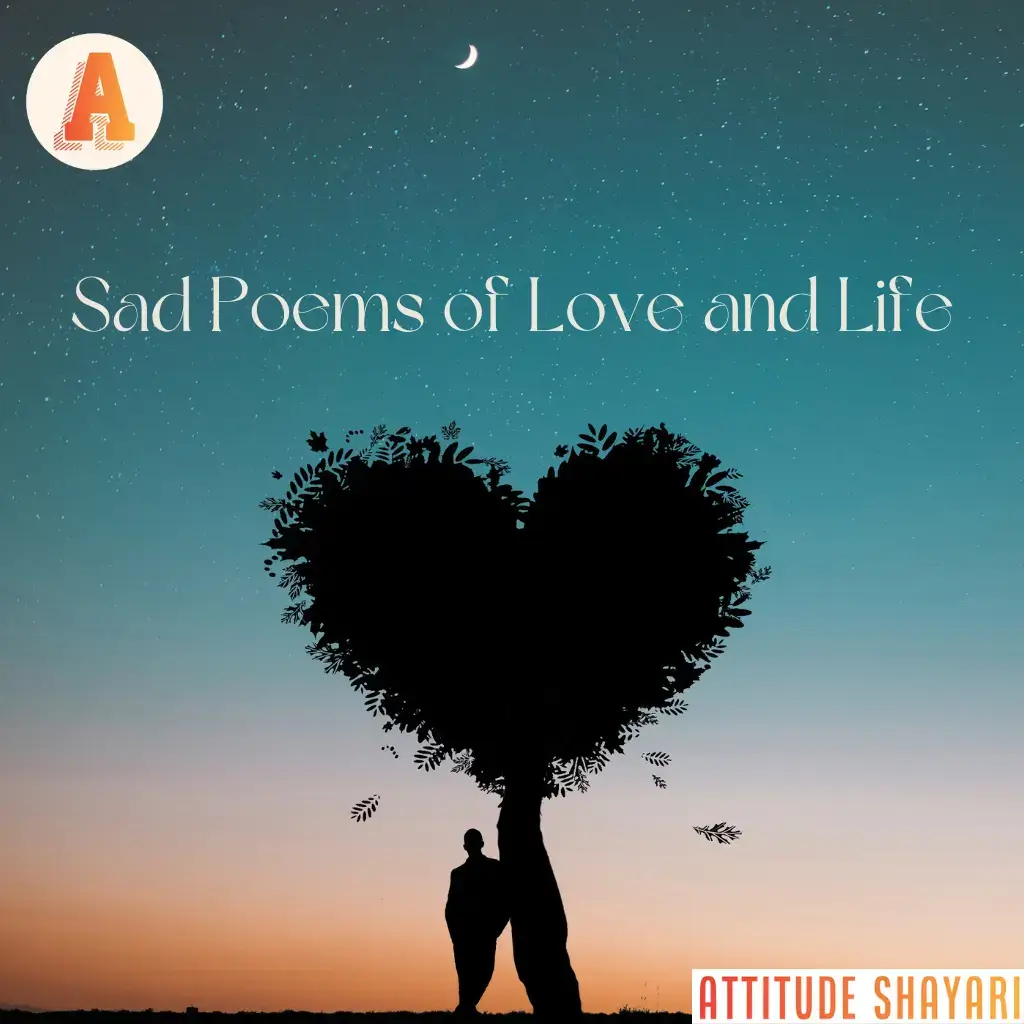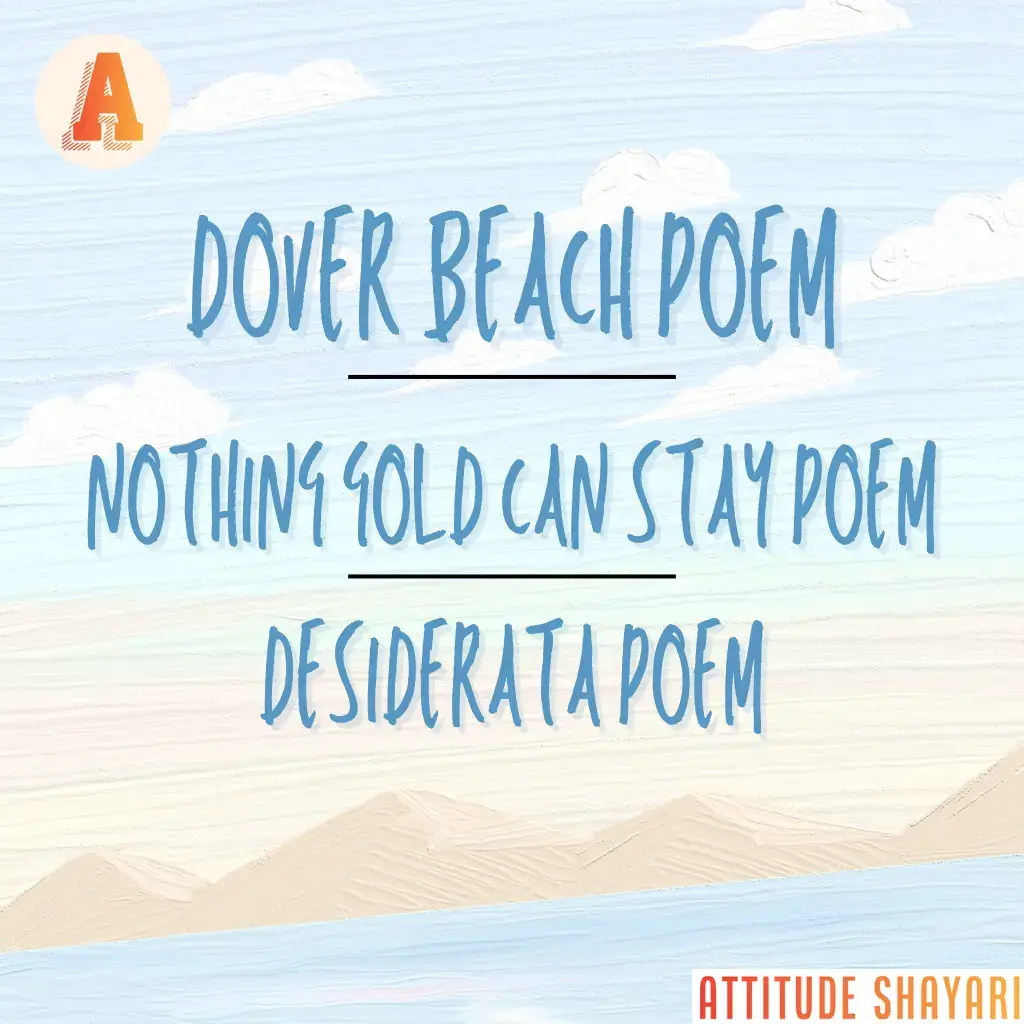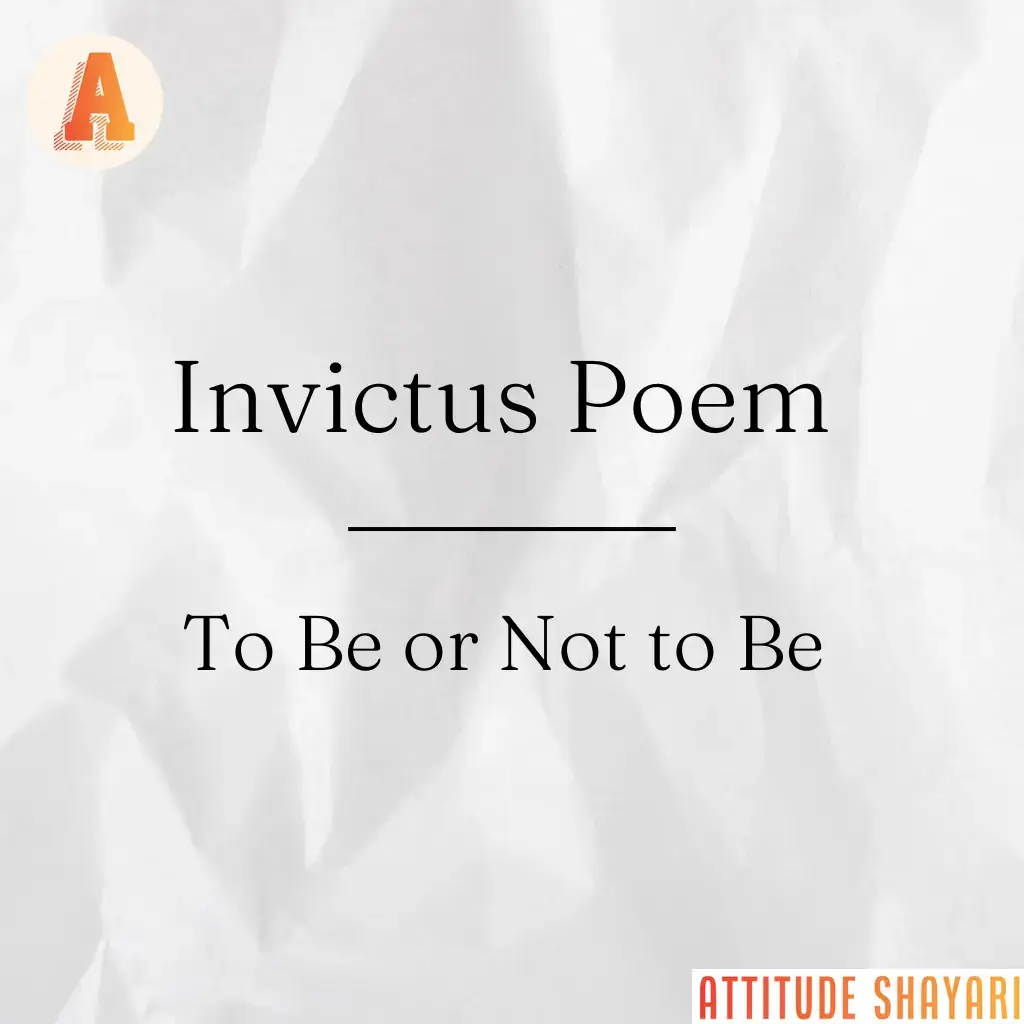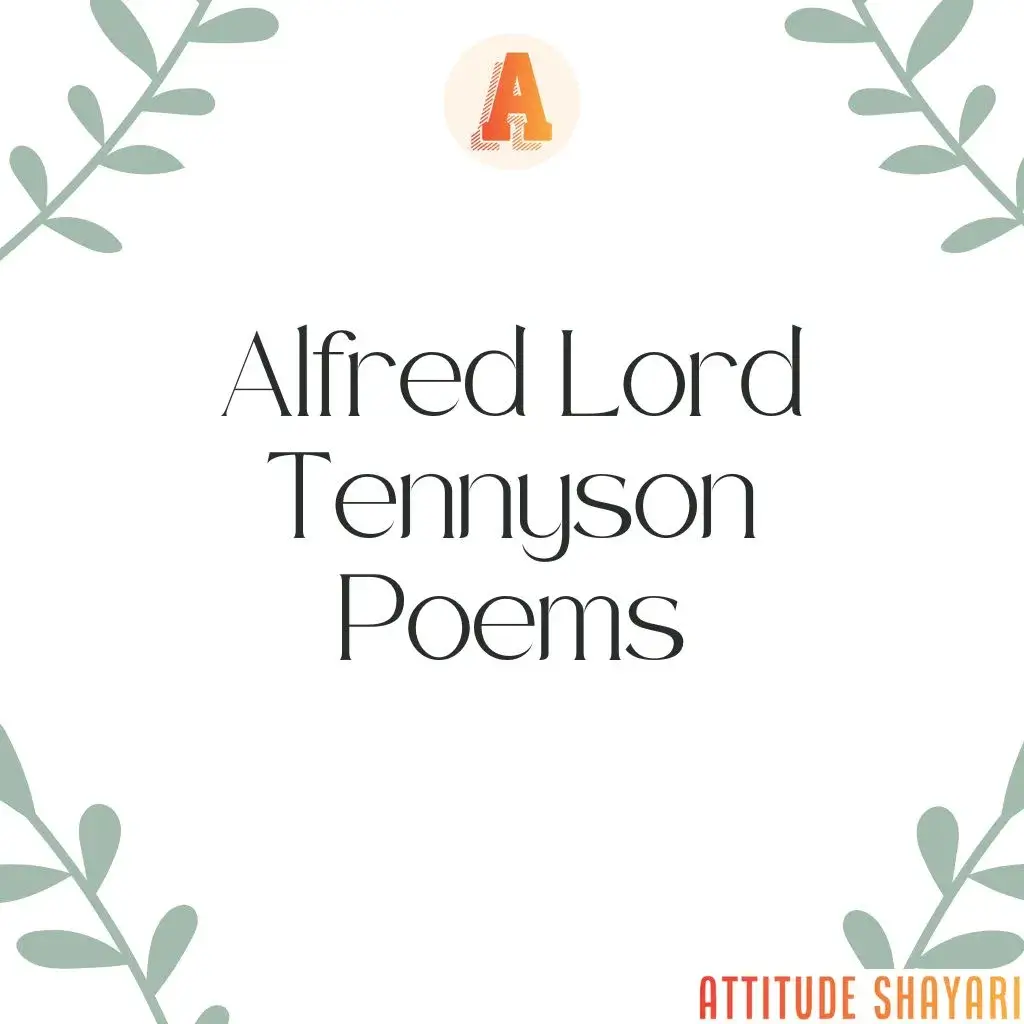
Alfred Lord Tennyson is one of the greatest poets in English literature. His poetry is well known for its deep emotions, beautiful words, and exploration of themes like loss, love, nature and most importantly the human experience. He has a gift for expressing the complex feelings in a way that touches the heart of the readers which ultimately makes his work timeless.
His poetry often reflects the multiple challenges and struggles of life which is offering all the readers a sense of comfort and understanding. He beautifully captures the highs and the lows of human existence which ranges from joy of love to the deep pain of grief. His ability to blend the personal emotions with larger questions about life and death makes his work accessible to everyone.
Tennyson’s poems continue to be admired for their musicality and the way they evoke strong emotions. His work is well cherished by readers and the scholars around the world. Make sure to read all of the poems and do not forget to share with your friends and family. Happy reading!!
Alfred Lord Tennyson Poems
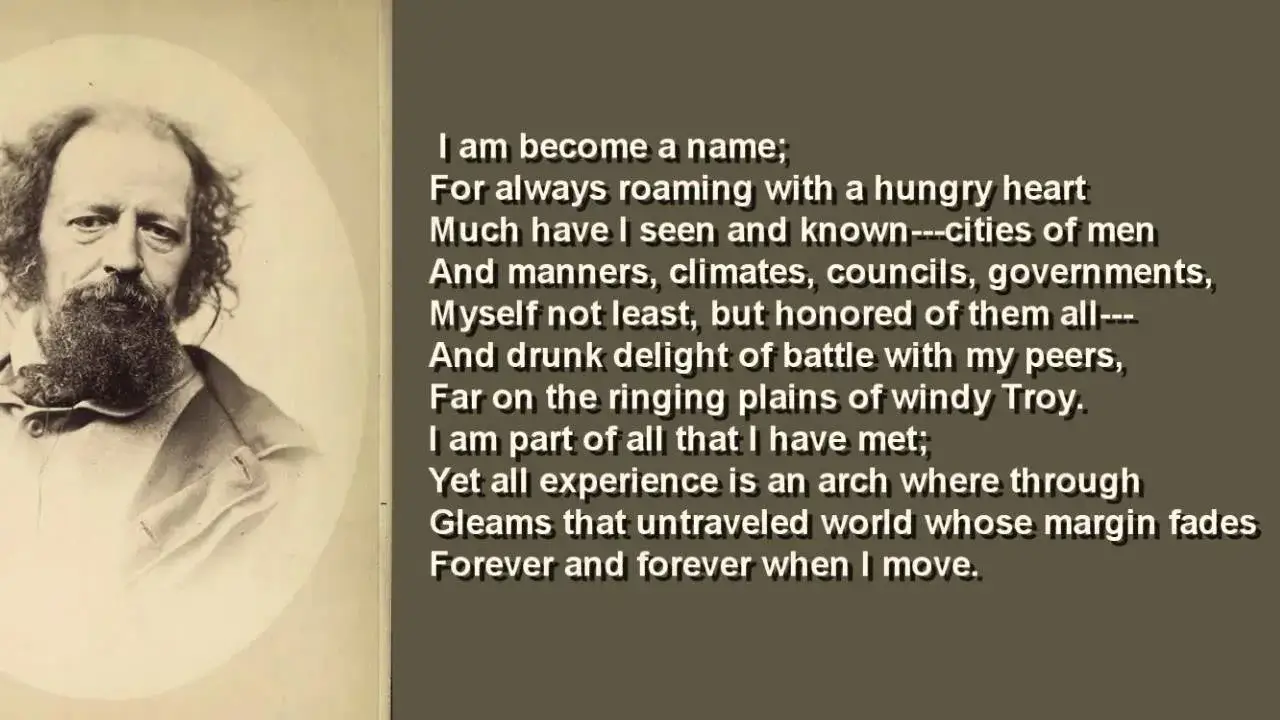
In her nest at peep of day?
Let me fly, says little birdie,
Mother, let me fly away.
Birdie, rest a little longer,
Till the little wings are stronger,
So she rests a little longer,
Then she flies away. [/quote] [quote] He clasps the crag with crooked hands;
Close to the sun in lonely lands,
Ring’d with the azure world, he stands.
What does little baby say,
In her bed at peep of day?
Baby says, like little birdie,
Let me rise and fly away.
Baby, sleep a little longer,
Till the little limbs are stronger,
If she sleeps a little longer, [/quote]
[quote] Thou seemest human and divine,
The highest, holiest manhood, thou:
Our wills are ours, we know not how;
Our wills are ours, to make them thine. [/quote]
Read More: Best Poems for Funerals
Ulysses Poem Alfred Lord Tennyson
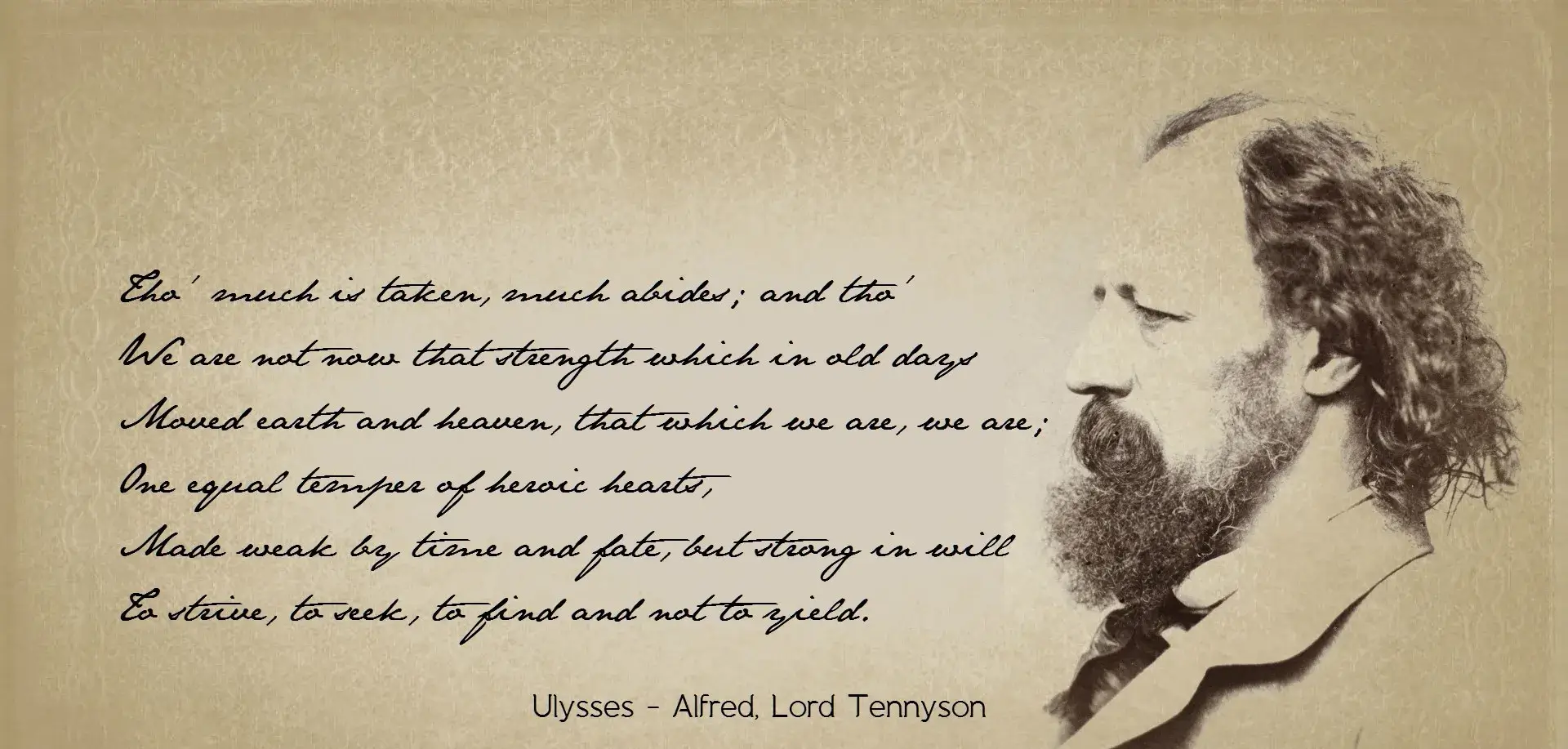
Far, far beneath in the abysmal sea,
His ancient, dreamless, uninvaded sleep
The Kraken sleepeth: faintest sunlights flee
About his shadowy sides: above him swell
Huge sponges of millennial growth and height;
And far away into the sickly light,
From many a wondrous grot and secret cell
Unnumber’d and enormous polypi
Winnow with giant arms the slumbering green.
There hath he lain for ages and will lie
Battening upon huge seaworms in his sleep,
Until the latter fire shall heat the deep;
Then once by man and angels to be seen,
In roaring he shall rise and on the surface die [/quote] [quote] Break, break, break,
On thy cold gray stones, O Sea!
And I would that my tongue could utter
The thoughts that arise in me.
O, well for the fisherman’s boy,
That he shouts with his sister at play!
O, well for the sailor lad,
That he sings in his boat on the bay!
And the stately ships go on
To their haven under the hill;
But O for the touch of a vanish’d hand,
And the sound of a voice that is still!
Break, break, break,
At the foot of thy crags, O Sea!
But the tender grace of a day that is dead
Will never come back to me. [/quote]
[quote] The splendor falls on castle walls
And snowy summits old in story:
The long light shakes across the lakes
And the wild cataract leaps in glory.
Blow, bugle, blow, set the wild echoes flying,
Blow, bugle; answer, echoes–dying, dying, dying.
O hark, O hear! how thin and clear,
And thinner, clearer, farther going!
O sweet and far from cliff and scar
The horns of Elfland faintly blowing!
Blow, let us hear the purple glens replying,
Blow, bugle; answer, echoes–dying, dying, dying.
O love they die in yon rich sky,
They faint on hill or field, or river:
Our echoes roll from soul to soul,
And grow forever and forever.
Blow, bugle, blow, set the wild echoes flying,
And answer, echoes, answer–dying, dying, dying. [/quote]
[quote] Tears, idle tears, I know not what they mean,
Tears from the depth of some divine despair
Rise in the heart, and gather to the eyes,
In looking on the happy Autumn-fields,
And thinking of the days that are no more.
Fresh as the first beam glittering on a sail,
That brings our friends up from the underworld,
Sad as the last which reddens over one
That sinks with all we love below the verge;
So sad, so fresh, the days that are no more. [/quote]
[quote] Ah, sad and strange as in dark summer dawns
The earliest pipe of half-awakened birds
To dying ears, when unto dying eyes
The casement slowly grows a glimmering square;
So sad, so strange, the days that are no more.
Dear as remembered kisses after death,
And sweet as those by hopeless fancy feigned
On lips that are for others; deep as love,
Deep as first love, and wild with all regret;
O Death in Life, the days that are no more! [/quote]
Read More: Emily Dickinson Love Poems and Poems on Death
Alfred Tennyson Poems
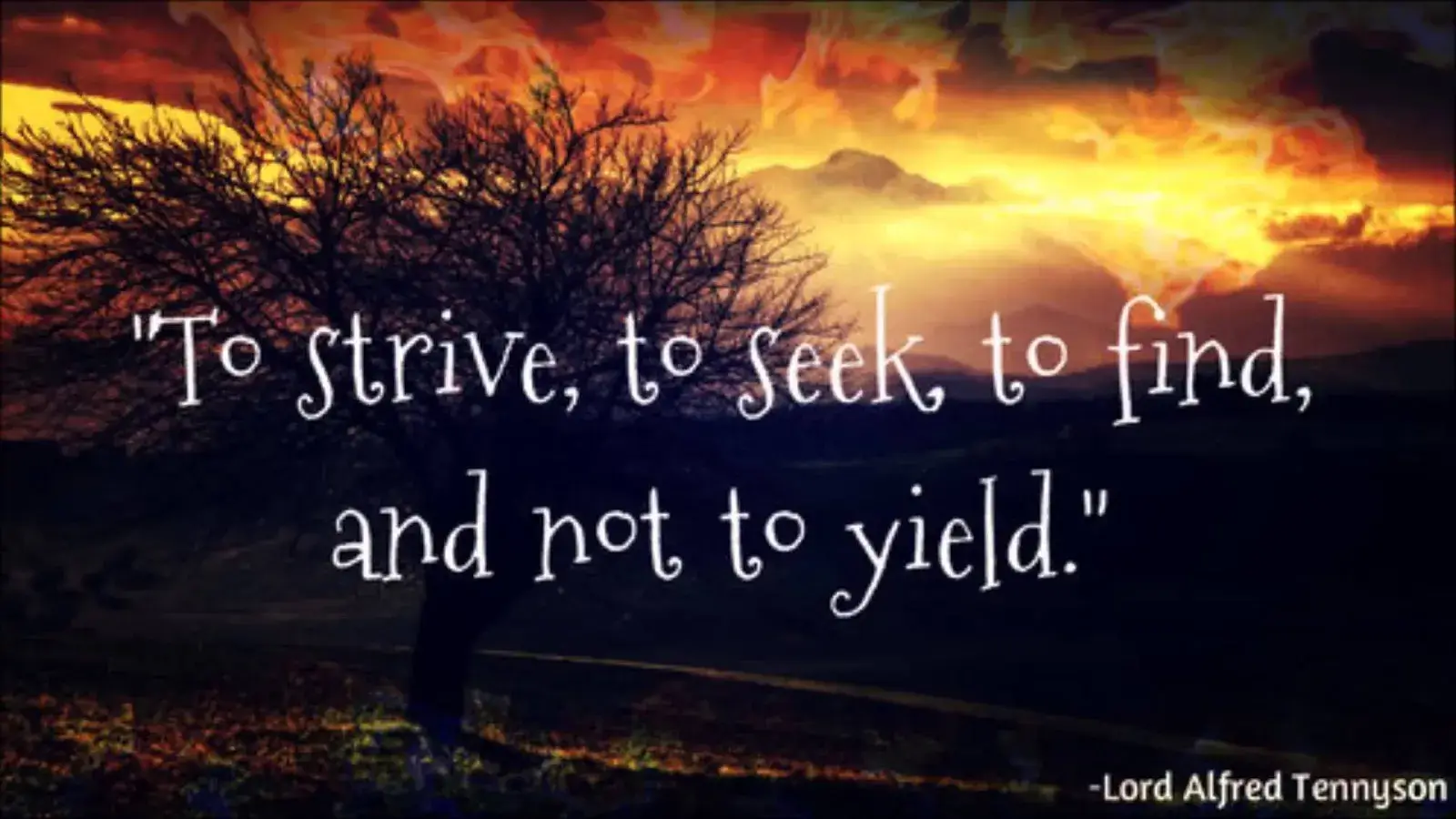
Thy tribute wave deliver:
No more by thee my steps shall be,
For ever and for ever.
Flow, softly flow, by lawn and lea,
A rivulet then a river:
Nowhere by thee my steps shall be
For ever and for ever. [/quote]
[quote] I thought of Thee, my partner and my guide,
As being past away. -Vain sympathies!
For backward, Duddon! as I cast my eyes,
I see what was, and is, and will abide;
Still glides the Stream, and shall not cease to glide;
The Form remains, the Function never dies;
While we, the brave, the mighty, and the wise,
We Men, who in our morn of youth defied
The elements, must vanish; -be it so!
Enough, if something from our hands have power
To live, and act, and serve the future hour;
And if, as toward the silent tomb we go,
Through love, through hope, and faith’s transcendent dower,
We feel that we are greater than we know. [/quote]
[quote] MY father left a park to me,
But it is wild and barren,
A garden too with scarce a tree,
And waster than a warren:
Yet say the neighbours when they call,
It is not bad but good land,
And in it is the germ of all
That grows within the woodland.
O had I lived when song was great
In days of old Amphion,
And ta’en my fiddle to the gate,
Nor cared for seed or scion!
And had I lived when song was great,
And legs of trees were limber,
And ta’en my fiddle to the gate,
And fiddled in the timber! [/quote]
[quote] Ask me no more: the moon may draw the sea;
The cloud may stoop from heaven and take the shape,
With fold to fold, of mountain or of cape;
But O too fond, when have I answer’d thee?
Ask me no more.
Ask me no more: what answer should I give?
I love not hollow cheek or faded eye:
Yet, O my friend, I will not have thee die!
Ask me no more, lest I should bid thee live;
Ask me no more.
Ask me no more: thy fate and mine are seal’d:
I strove against the stream and all in vain:
Let the great river take me to the main:
No more, dear love, for at a touch I yield;
Ask me no more. [/quote]
[quote] Beautiful city, the centre and crater of European confusion,
O you with your passionate shriek for the rights of an equal
humanity,
How often your Re-volution has proven but E-volution
Roll’d again back on itself in the tides of a civic insanity! [/quote]
Read More: Pablo Neruda English Poems
Alfred Lord Tennyson Ulysses Poem
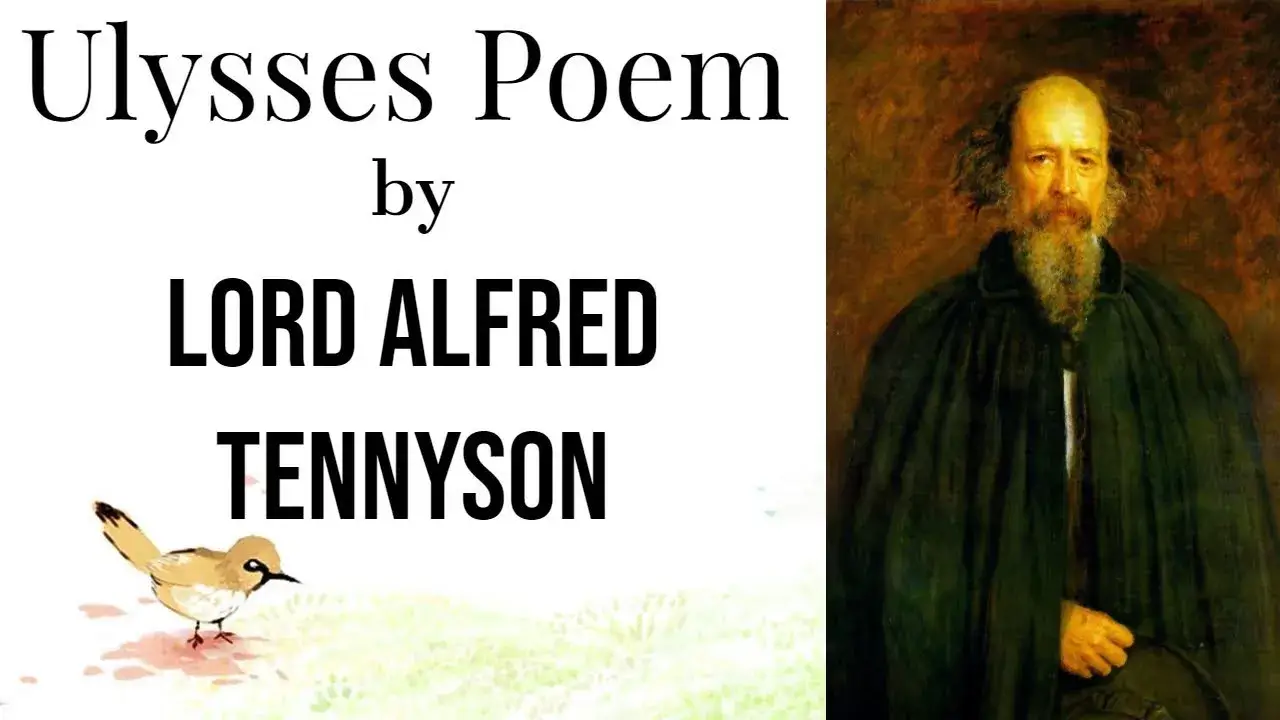
And snowy summits old in story:
The long light shakes across the lakes,
And the wild cataract leaps in glory.
Blow, bugle, blow, set the wild echoes flying,
Blow, bugle; answer, echoes, dying, dying, dying.
O hark, O hear! how thin and clear,
And thinner, clearer, farther going!
O sweet and far from cliff and scar
The horns of Elfland faintly blowing!
Blow, let us hear the purple glens replying:
Blow, bugle; answer, echoes, dying, dying, dying.
O love, they die in yon rich sky,
They faint on hill or field or river:
Our echoes roll from soul to soul,
And grow for ever and for ever.
Blow, bugle, blow, set the wild echoes flying,
And answer, echoes, answer, dying, dying, dying. [/quote]
[quote] Break, break, break,
On thy cold gray stones, O Sea!
And I would that my tongue could utter
The thoughts that arise in me.
O, well for the fisherman’s boy,
That he shouts with his sister at play!
O, well for the sailor lad,
That he sings in his boat on the bay!
And the stately ships go on
To their haven under the hill;
But O for the touch of a vanished hand,
And the sound of a voice that is still!
Break, break, break,
At the foot of thy crags, O Sea!
But the tender grace of a day that is dead
Will never come back to me. [/quote]
[quote] Where Claribel low-lieth
The breezes pause and die,
Letting the rose-leaves fall:
But the solemn oak-tree sigheth,
Thick-leaved, ambrosial,
With an ancient melody
Of an inward agony,
Where Claribel low-lieth.
At eve the beetle boometh
Athwart the thicket lone:
At noon the wild bee hummeth
About the moss’d headstone:
At midnight the moon cometh,
And looketh down alone.
Her song the lintwhite swelleth,
The clear-voiced mavis dwelleth,
The callow throstle lispeth,
The slumbrous wave outwelleth,
The babbling runnel crispeth,
The hollow grot replieth
Where Claribel low-lieth. [/quote]
[quote] 1. Is it the wind of the dawn that I hear
in the pine overhead?
2. No; but the voice of the deep as it hollows
the cliffs of the land.
1. Is there a voice coming up with the
voice of the deep from the strand,
Once coming up with a Song in the
flush of the glimmering red?
2. Love that is born of the deep coming
up with the sun from the sea.
1. Love that can shape or can shatter a
life till the life shall have fled?
2. Nay, let us welcome him, Love that
can lift up a life from the dead.
1. Keep him away from the lone little isle.
Let us be, let us be.
2. Nay, let him make it his own, let him
reign in it – he, it is he,
Love that is born of the deep coming
up with the sun from the sea. [/quote]
[quote] O LOVE, Love, Love! O withering might!
O sun, that from thy noonday height
Shudderest when I strain my sight,
Throbbing thro’ all thy heat and light,
Lo, falling from my constant mind,
Lo, parch’d and wither’d, deaf and blind,
I whirl like leaves in roaring wind.
Last night I wasted hateful hours
Below the city’s eastern towers:
I thirsted for the brooks, the showers:
I roll’d among the tender flowers:
I crush’d them on my breast, my mouth;
I look’d athwart the burning drouth
Of that long desert to the south. [/quote]
Read More: Different Types of Poems You Must Know

